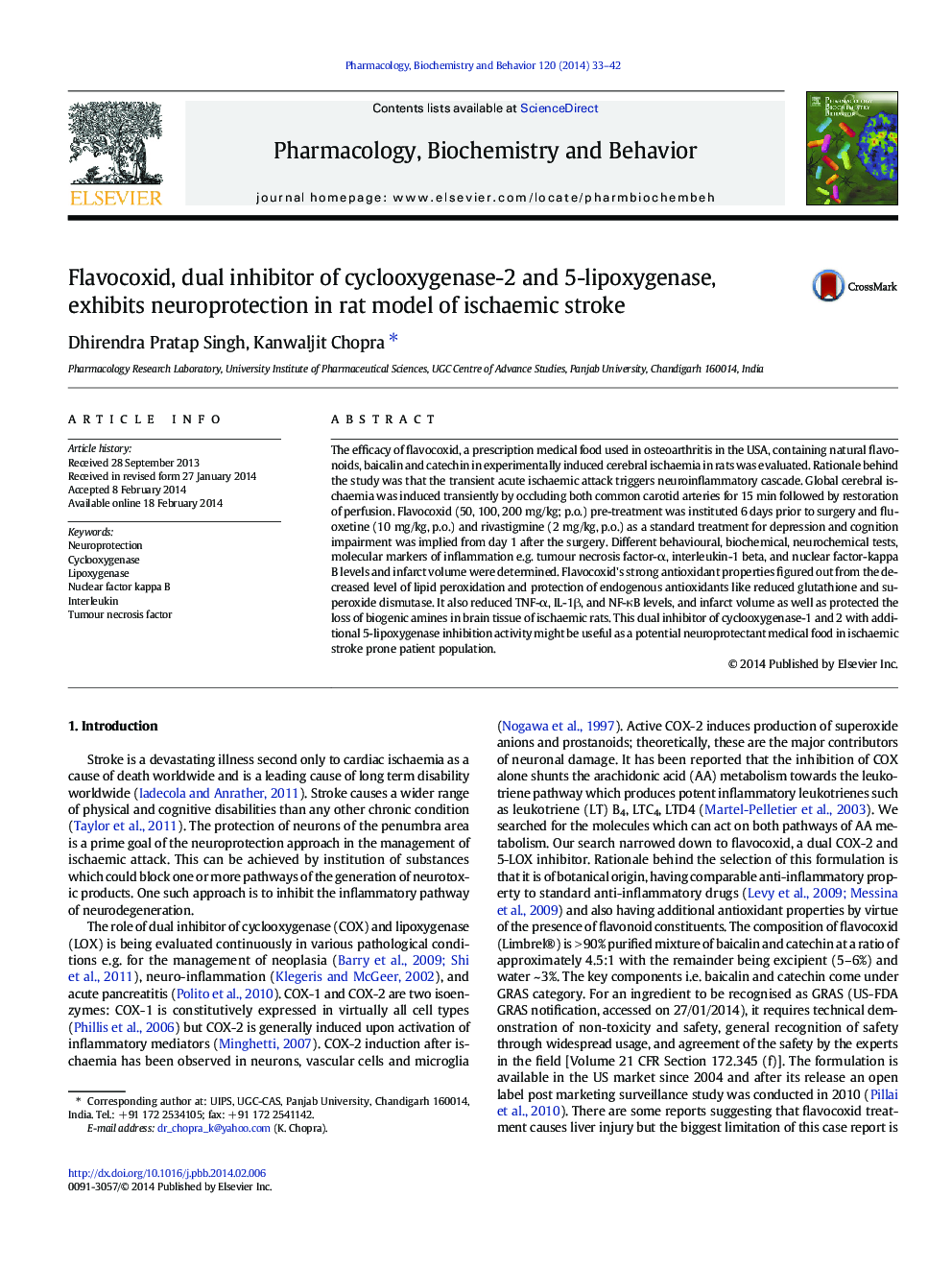| Article ID | Journal | Published Year | Pages | File Type |
|---|---|---|---|---|
| 2012936 | Pharmacology Biochemistry and Behavior | 2014 | 10 Pages |
•Flavocoxid provides effective neuroprotection in a rat model of stroke.•The post stroke depression and cognitive loss were ameliorated by flavocoxid.•Anti-inflammatory and antioxidant properties contribute to this neuroprotection.•Dual inhibition of COX and LOX provides an edge over other anti-inflammatory drugs.
The efficacy of flavocoxid, a prescription medical food used in osteoarthritis in the USA, containing natural flavonoids, baicalin and catechin in experimentally induced cerebral ischaemia in rats was evaluated. Rationale behind the study was that the transient acute ischaemic attack triggers neuroinflammatory cascade. Global cerebral ischaemia was induced transiently by occluding both common carotid arteries for 15 min followed by restoration of perfusion. Flavocoxid (50, 100, 200 mg/kg; p.o.) pre-treatment was instituted 6 days prior to surgery and fluoxetine (10 mg/kg, p.o.) and rivastigmine (2 mg/kg, p.o.) as a standard treatment for depression and cognition impairment was implied from day 1 after the surgery. Different behavioural, biochemical, neurochemical tests, molecular markers of inflammation e.g. tumour necrosis factor-α, interleukin-1 beta, and nuclear factor-kappa B levels and infarct volume were determined. Flavocoxid's strong antioxidant properties figured out from the decreased level of lipid peroxidation and protection of endogenous antioxidants like reduced glutathione and superoxide dismutase. It also reduced TNF-α, IL-1β, and NF-κB levels, and infarct volume as well as protected the loss of biogenic amines in brain tissue of ischaemic rats. This dual inhibitor of cyclooxygenase-1 and 2 with additional 5-lipoxygenase inhibition activity might be useful as a potential neuroprotectant medical food in ischaemic stroke prone patient population.
